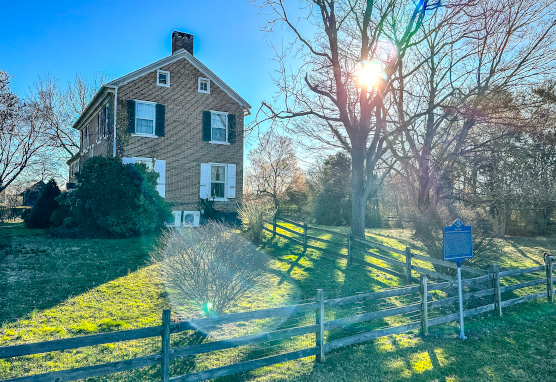


James Boulden the Elder and his family moved to Delaware from Maryland in the mid-18th century, amassing wealth and expanding their land ownership in Pencader Hundred as the century progressed. The two-story brick mansion house was built during this time period and is a strong representation of Gregorian architecture. A service wing erected between 1800-1820 was added to the main structure and is a rare example of stone construction in this area. Five outbuildings situated on the property include a corncrib/granary, a smoke house, a dairy barn and stable, a milk house, and an open frame shed for cattle. In the 1820s, son James ran a diversified farming operation: growing corn, wheat, and hay; raising cattle for beef and dairy; using horses and oxen to work in the fields; and producing wool from sheep. During the 19th century the farm increasingly focused on dairying, producing milk and butter for the Mid-Atlantic urban markets. After son James’ passing in 1826, the farm was left to his great-nephew and namesake. Circa 1850, James Boulden III carried out substantial renovations to the mansion house incorporating several “Revival” styles, evident in the ornate woodwork and a reorganization of the interior space. The farm remained in the hands of the Boulden family and their descendants until 1918, when the sale of the property ended their 175-year ownership. The architectural and agricultural importance of Poplar Hall was recognized when the property was named to the National Register of Historic Places on January 26, 1988.
Installed in 2014.
The Honorable Bethany Hall-Long, Delaware State Senate
The Honorable Earl G. Jaques, Jr., Delaware House of Representatives
3182 Denny Road, Newark, DE 19702
Related Topics: Brick Mansion, Dairy Farm, Diversified Farm, Historic Location, Historical Markers, James Boulden, James Boulden III, National Register of Historic Places, New Castle County, Newark, NHRP, Pencader Hundred